by Rahim Hamid and Irina Tsukerman
The former media officer and spokesman for the Arab Struggle Movement for the Liberation of Ahwaz (ASMLA), Yaqoub Hor Al-Tostari, has announced that he has renewed his hunger strike, the second such protest in the ‘Battle of the Empty Bowl’ as the hunger strikes have been named, to protest against the extension of his unjust detention in Denmark.
Tostari was arrested on February 3 in Denmark where he now lives in exile with his family. His arrest coincided with the arrests of Habib Jabor, the movement’s former leader, and his brother Nasser Jabor, also in Denmark, while in Holland Dutch security forces arrested the journalist Isa Sawari (Mehdi Fakher), a member of the ASMLA’s media office and presenter of a TV program on the Ahwazna channel.
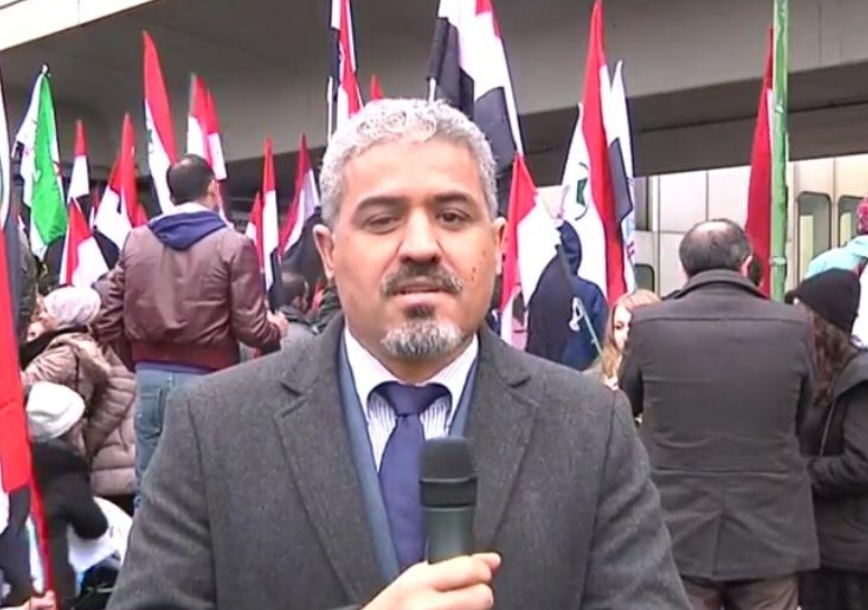
Nasser Jabor’s wife has reported that her husband is suffering from severe spinal problems and needs immediate medical care, noting that due to physiological pressure and long hours of interrogation his pain has worsened and he needs to be admitted to hospital for treatment.
Nasser Jabor has been held in solitary confinement since February 3, treatment usually reserved for convicted and dangerous terrorists and murderers, or inflicted as a temporary measure in response to bad behavior. Many experts consider prolonged solitary confinement a cruel and unusual punishment.
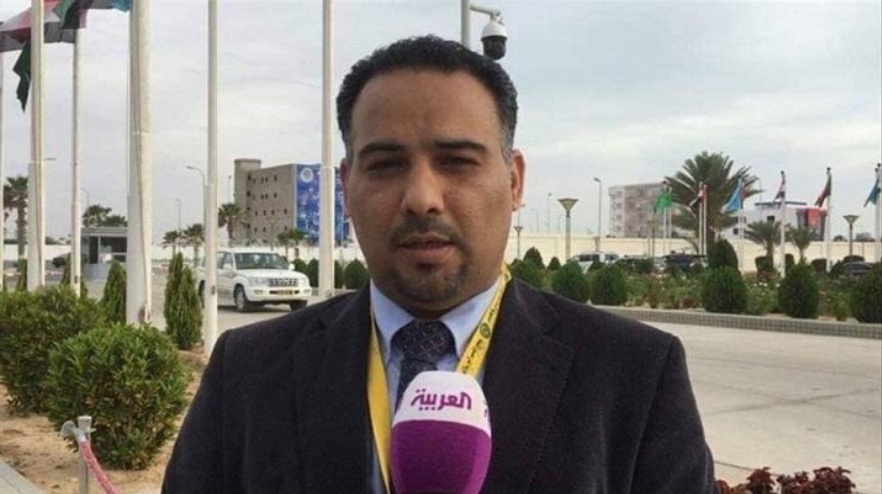
Human rights bodies and legal sources revealed that Tostari’s hunger strike is part of an escalating protest at the Danish authorities continuing unjustified detention of the activist who has committed no crime, with the accusers providing no evidence to substantiate the allegations levelled against him by Iran’s regime which continues to target dissidents in Europe and worldwide.
The sources confirmed that the accusations directed against the members of the ASMLA are scurrilous, fabricated slanders on the Iranian regime’s behalf which are intended to smear and delegitimize a movement engaged in peaceful campaigning for freedom, justice, dignity and democracy for Iran’s brutally oppressed Ahwazi Arab population, long denied by Iran’s regime.
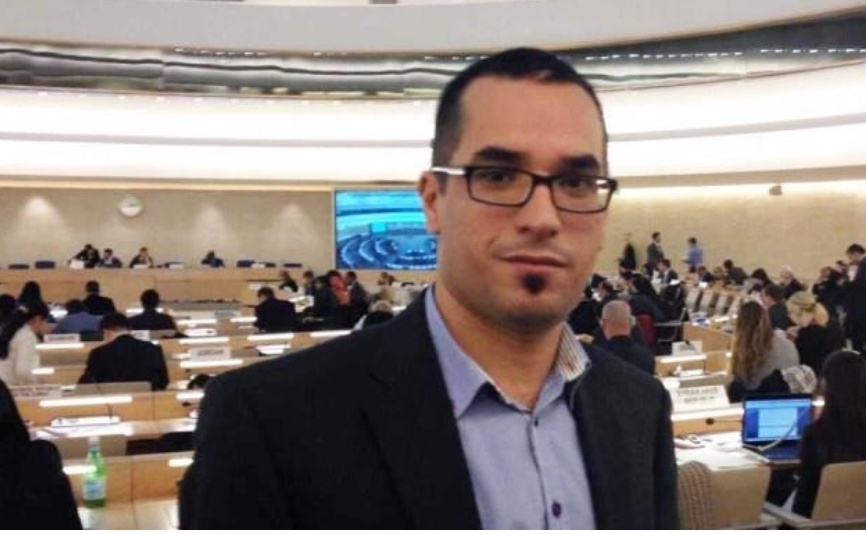
The sources further confirmed that, despite holding Tostari and the other activists for over six months, the Danish authorities have been unable to provide any evidence to their continued detention. Specifically, according to these sources the judge had question the police and the prosecutor’s inability to substantiate the initial charges alleging that the three detainees in Denmark had been engaging in acts of industrial, and other espionage, on behalf of Saudi Arabia after months of investigation and lack of transparency in the process, continuing behind close doors. Rather than present any evidence to these claims, however, the police and the prosecutor demanded more time for investigation and came back with unrelated charges accusing the detainees of a terrorism-related conspiracy, with political links to Saudi Arabia.
Throughout this experience, the detainees had been unable to engage with independent counsel, nor share their experiences with the media. Furthermore, the media coverage of these developments had been limited to the talking points provided by the authorities, and therefore, largely reflected, the government perspective.
Such media coverage has the effect of perpetuating biases and false perceptions in the public view of the situation, making it difficult for the average citizen to understand the scale of injustice being inflicted upon the Ahwazi asylees from Iran’s systematic oppression, one of whom is a Danish citizen.
Yaqoub Hor Tostari’s family has called for support for his struggle for justice and freedom, emphasizing that he has committed no crime and is being imprisoned as a result of unfounded allegations in an effort by Iran’s regime to silence dissidents who expose its well-documented crimes against humanity and speak out in defense of the long-withheld rights of the Ahwazi people.
To that effect, Iran is engaging in a form of lawfare which coopts, manipulates, and weaponizes European systems of justice against opposition and critics. It is a form of gaslighting and deception, that runs counter to Danish and Dutch commitment to human rights. For from upholding judicial and national independence and preserving the integrity of the legal processes, Iran’s campaign runs counter to European or Danish and Dutch own national security interests. This interference with the legal system is the highest form of disrespect for the sovereignty of these countries.
Al Tostari’s wife, who wished to withhold her name for fear of retribution against her family in Iran by the regime, said on Friday that Yaqoub will not break his hunger strike until his case and those of his fellow activists are heard and they receive a free trial, and that he is willing to starve to death in order attain justice. After saying this, she broke down in tears, pleading for media and human rights organizations to intervene and raise awareness of her husband’s case, to ensure a fair trial and to call for his release.
Until now, these cases have largely been ignored by the major human rights NGOs, such as Amnesty International’s chapter in Denmark, which perhaps, are concerned about the image of challenging Western governments over the plight of the victims of Iranian oppression.
Tostari’s wife added that Ahwazis had fled the regime’s murderous oppression to seek refuge in European countries, hoping that they would finally be able to enjoy long-denied democracy, freedom and human rights in safety and to speak out about the Iranian regime’s human rights abuses only to find themselves caught between the economic and political convergence of Iran and Western countries Tostari’s family has demanded that the UN’s Special Rapporteur on the independence of judges and lawyers, along with the Special Rapporteur on refugees’ rights, and the Danish government headed by the country’s Prime Minister, urgently and immediately intervene in the case to secure Yaqoub Hor Tostari’s release, especially since he has already been imprisoned for far longer than the legal period of detention for which he can be held without charge without any of the Iranian regime’s scurrilous allegations against him being substantiated in any way.
Until now, UN’s Special Rapporteur Agnes Callamard has not addressed the issue in public in any way. Callamard had expressed outrage after US liquidation of Iran’s head of the IRGC Al Quds force, the designated terrorist Qassem Soleimani.
Tostari has repeatedly refuted these allegations and called for an investigation into how the regime is putting pressure on officials to extend his detention in such a terrible unjust manner. The family stressed the need to galvanize effective solidarity with the cause of Tostari and his colleagues and fellow activists, particularly from institutions concerned with human rights, chiefly: Amnesty International, the Council of Europe (Le Conseil de l’Europe), Foundation for Human Rights Defenders (ProtectDefenders), the Front Line Foundation for the Protection of Defenders Of Human rights (frontlinedefenders), and the Danish Refugee Council (DRC).
In a related matter, the Ahwazi Organization for the Defence of Human Rights confirms that the measures taken by the Danish authorities, whether in the manner of arrest or detention, violate the terms stipulated in international conventions, as follows: First: the principle of the presumption of innocence, which is the most important principle in dealing with prisoners awaiting trial. None of the Ahwazi activists being held were imprisoned to penalize them or charged or tried before detention, and prison authorities must take this into account, in compliance with Article (11) of the Universal Declaration of Human Rights, which states: Every person accused of a crime is considered innocent until proven guilty by law in a public trial in which he has the necessary guarantees for his defence.
Second: The judicial process against Yaqoub Hor Tostari has gradually extended his detention without justification or evidence in violation of Article (9) of the International Covenant on Civil and Political Rights, which states that any individual arrested or detained on a criminal charge shall be brought promptly to a judge or official legally authorized to take direct responsibility for judicial functions and shall have right to be tried within a reasonable time or released.
The detention of persons awaiting trial may not be the general rule. However, their release may be suspended on guarantees to ensure that they will attend the trial at any other stage of the judicial process and to ensure that the sentence is organized when necessary.
A couple of weeks ago, starting on July 21, 2020, Ahwazi activists in Germany held a sit-in protest and hunger strike outside the Danish Embassy in Berlin which lasted for four days in solidarity with the four detained ASMLA members. During the peaceful demonstration, the participants delivered messages to the Danish and Dutch embassies protesting against the detention of the activists and of prominent Ahwazna TV media anchor Eissa Mahdi al-Fakher The Ahwazi activists, who have named their series of hunger strikes the ‘Battle of the Empty Stomach’, also called on Denmark and the Netherlands not to be cowed or misled by Iranian regime pressures or the regime’s very typical use of empty threats and blackmail over economic deals.
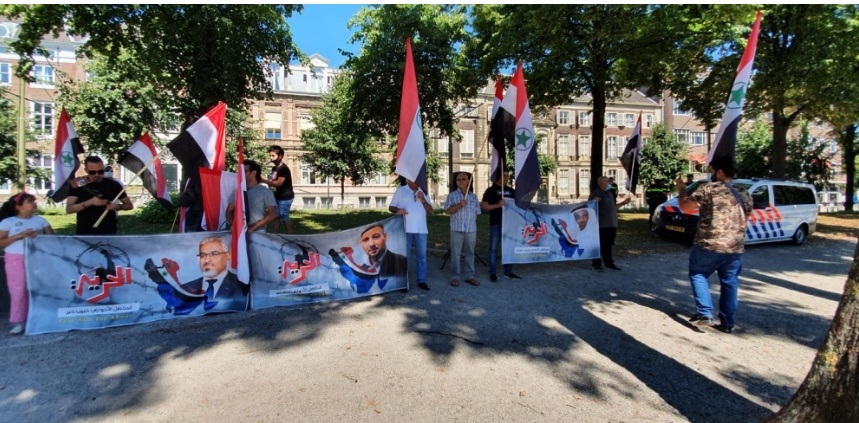
In addition, on Monday July 27, members of Belgium’s exiled Ahwazi community staged a protest in front of the EU Parliament calling for the immediate release of the detained Ahwazi members of ASMLA.
Protesters in the Netherlands also staged a peaceful demonstration in solidarity with the imprisoned activists on Friday August 7, calling on the Dutch government to release the journalist Isa Sawari (known as Mehdi Fakher). So far, however, the protests met with limited media coverage nor generated responses from the relevant government officials.
However, far from being seen as an attempt to interfere with the independence of the judicial process, such efforts should be viewed as an attempt to draw attentions to the violation of the due process rights of the detainees and to restore the process, for which the detainees and the families have the highest level of respect.
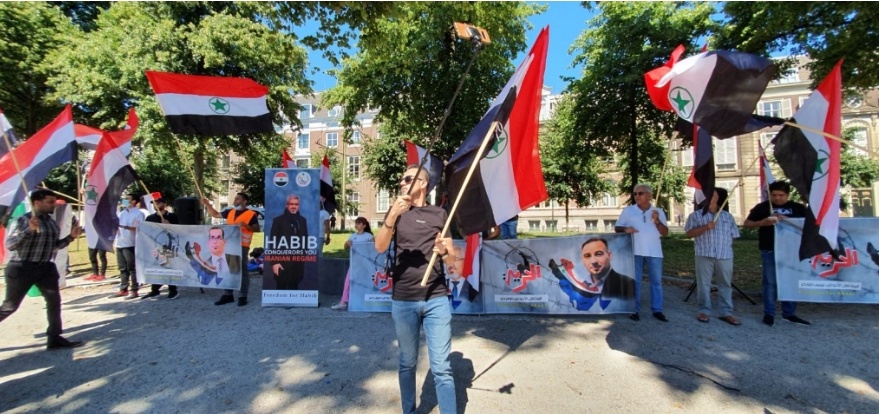
The backstory to these unfounded allegations is political, rather than legal. All four detainees were arrested the day following the conclusion of a lucrative pharmaceutical deal between Denmark and the Iranian government. Both Denmark and the Netherlands have had a series of pharmaceutical deals and investments inside the country.
The Ahwazis have been a long source of irritation for the Iranian, since over the years they have gotten increasingly vocal and successful at bringing attention to Tehran’s abuses, including hosting a successful conference for the EU parliamentarians in Brussels shortly prior to the arrests. In the past, the regime has targeted the detainees through assassination attempts and spying operations.
Relevant accessories to attempt murder and espionage have been convicted in Scandinavian courts. Despite these instances of Iran’s obvious intervention in European affairs, real accountability has avoided Tehran, allowing it instead, to continue business dealings with the countries in question, but using the Ahwazi critics as leverage.
The legal process in Denmark and the Netherlands treats these past assassination and intimidation attempts as separate cases, unrelated to the current plight of the detainees. A fair process would include looking at the totality of circumstances and examining all the relevant facts, not just the convenient optics delivered by the police and the prosecutor on the basis of evidence that the detainees have not had the opportunity to examine properly, at least in part due to the ongoing pandemic.
At least part of the apparent reason for this unreasonably prolonged process is to shut down dissent by ASMLA and its members, affiliates, and associates, to intimidate other opposition, and to keep these specific Ahwazi activists from speaking out. The longer term goal, past keeping them silences for as long as possible, is to discredit the detainees and their efforts through an effective and wide ranging character assassination, disinformation about ASMLA and it activities, and the use of information warfare – which may include tampering with evidence – to corrupt the legal process and to taint the image and reputation of the detainees.
The more time they remain isolated and unable to participate effectively in their own defense and in the exposure of the political issues hijacking and driving this incomprehensible and corrupt legal farce the more like that is to happen.
Irina Tsukerman is a New-York based Human Rights Lawyer, National Security Analyst. She can be followed under @irinatsukerman.
Rahim Hamid is an Ahwazi author, freelance journalist and human rights advocate. He tweets under @Samireza42.